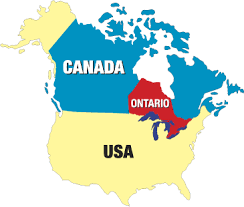.
 |
|
Ontario Sex-ed School Curriculum
Prevention Info for Kids
by Bill Murray, NAASCA founder
We were delighted to learn through Mary E Graziano, NAASCA family member and our BLOG manager, that the province of Ontario, Canada, has a plan that improves its sex education programs in schools.
The devil will be in the details, as we still can't tell what materials will be used, but we're happy the explanation below lays out what sorts of issues will be covered in which grades .. and that many of the topics are related to child abuse and trauma prevention.
We thought this would certainly be of interest to our members. |
What Ontario students will learn in new sex-ed classes
Ontario's updated sex education curriculum will impact students from Grade 1 to Grade 12. by Thestar.com
The Ontario government has unveiled the first update to the province's sex education curriculum since 1998.
Premier Kathleen Wynne has vowed that the updated curriculum will be in place in public and Catholic schools this September.
“We're very committed to this,” Wynne told reporters on Monday.
The changes will impact students from Grade 1 to Grade 12.
Grade 1
Students in Grade 1 will be taught the proper names for body parts – something child-abuse investigators have long urged.
They will also learn how to recognize non-verbal signals, such as facial expressions and tone of voice, to better communicate with others.
Grade 2
In Grade 2, students will learn about bodily changes and development, verbal and physical violence, and the concept that “no means no.”
Grades 3-4
Grade 3 students will learn about same-sex relationships, while the physical, emotional and social impacts of puberty will move from Grade 5 to Grade 4.
Grades 5-6
In Grade 5, students will continue learning about puberty, including menstruation and spermatogenesis, and how these processes relate to reproduction.
Students in Grade 6 will learn about masturbation and “gender expression.” They will also be educated on how to build healthy relationships and consent.
Grades 7-8
In Grades 7-8, students will learn about the dangers of “sexting.”
They will also discuss contraception, anal and oral sex, and ways to prevent pregnancy and sexually transmitted infections.
Grades 9-10
Teaching materials on mental health, previously relegated to older grades, will be introduced in Grade 9. Grade 9 students will also explore gender identity, sexual orientation and the resources available for support.
In Grade 10, students will continue to learn what factors influence sexual decision-making, including personal values, peer and family expectations, and media messages.
Under the current sex education program, Grades 9 and 10 students focus on promoting healthy sexuality, preventing sexually transmitted infections, and identifying the stages of sexuality.
Grades 11-12
Similarly to the existing program, students in Grades 11 and 12 will focus on how to use decision-making skills to create healthy relationships.
They will also learn about reducing the stigma around mental illness, and taking proactive health measures.
~~~~~~~~~~~~~~~~~~~~~~~~~
http://www.thestar.com/news/canada/2015/02/23/what-ontarios-students-will-learn-with-the-updated-sex-education-curriculum.html
.
|